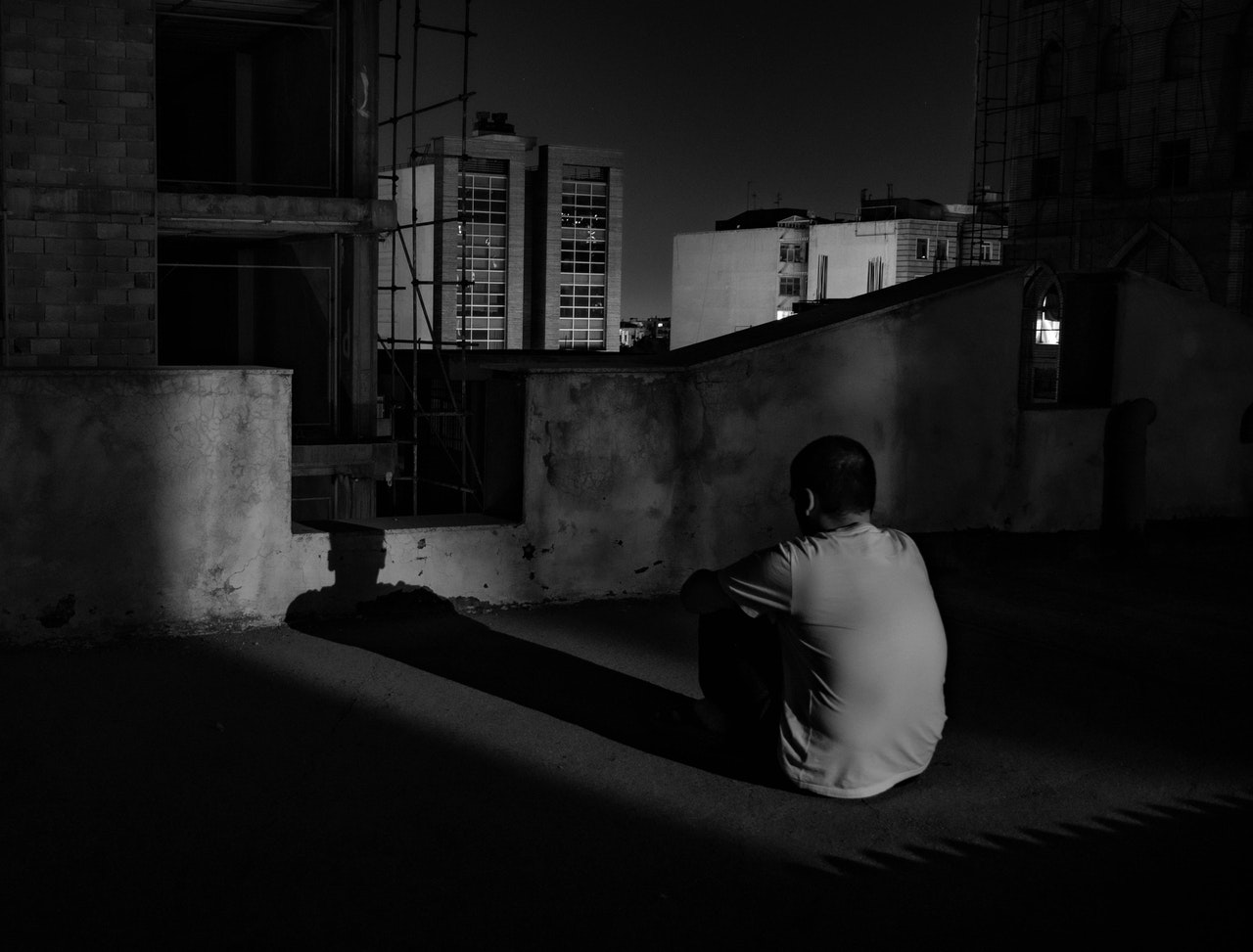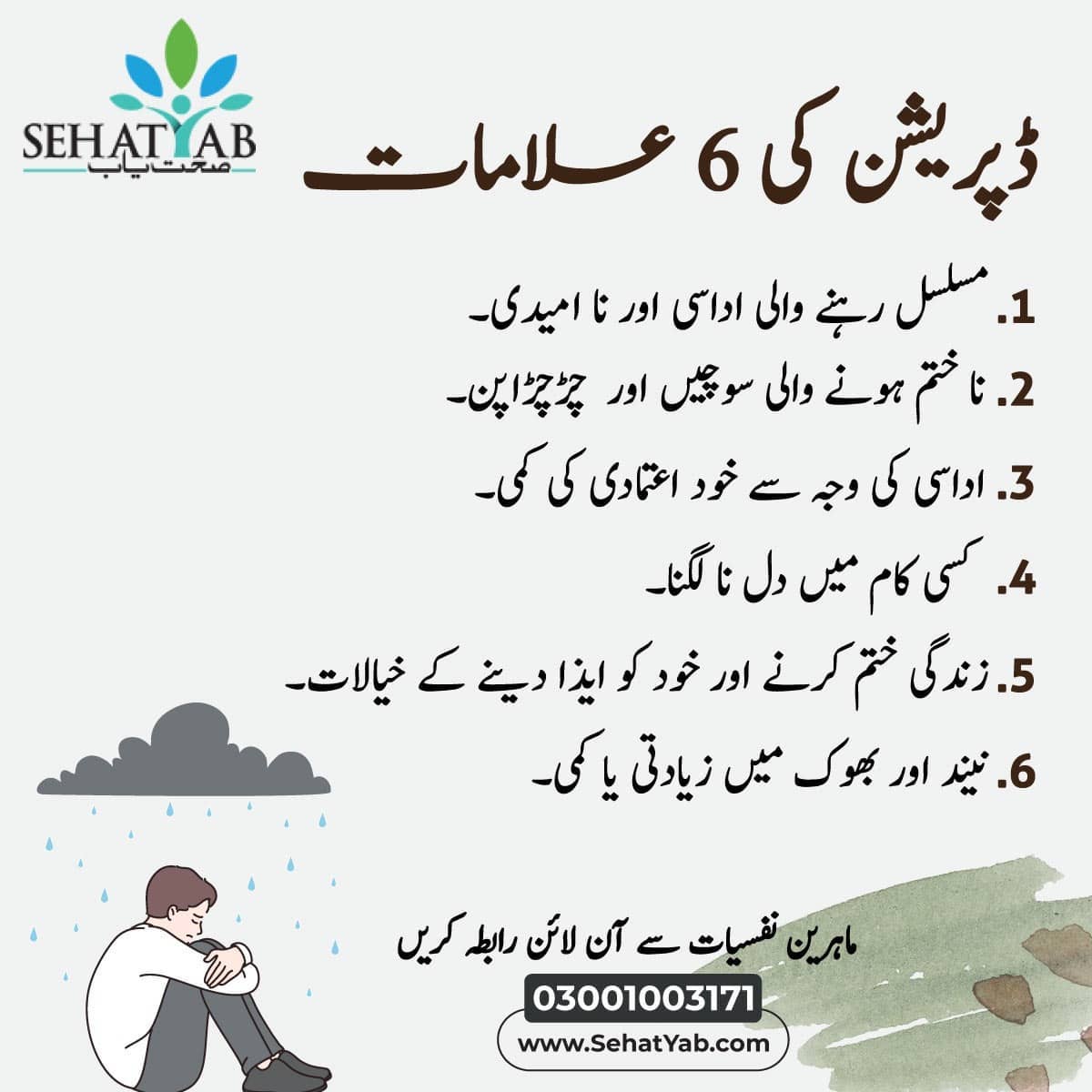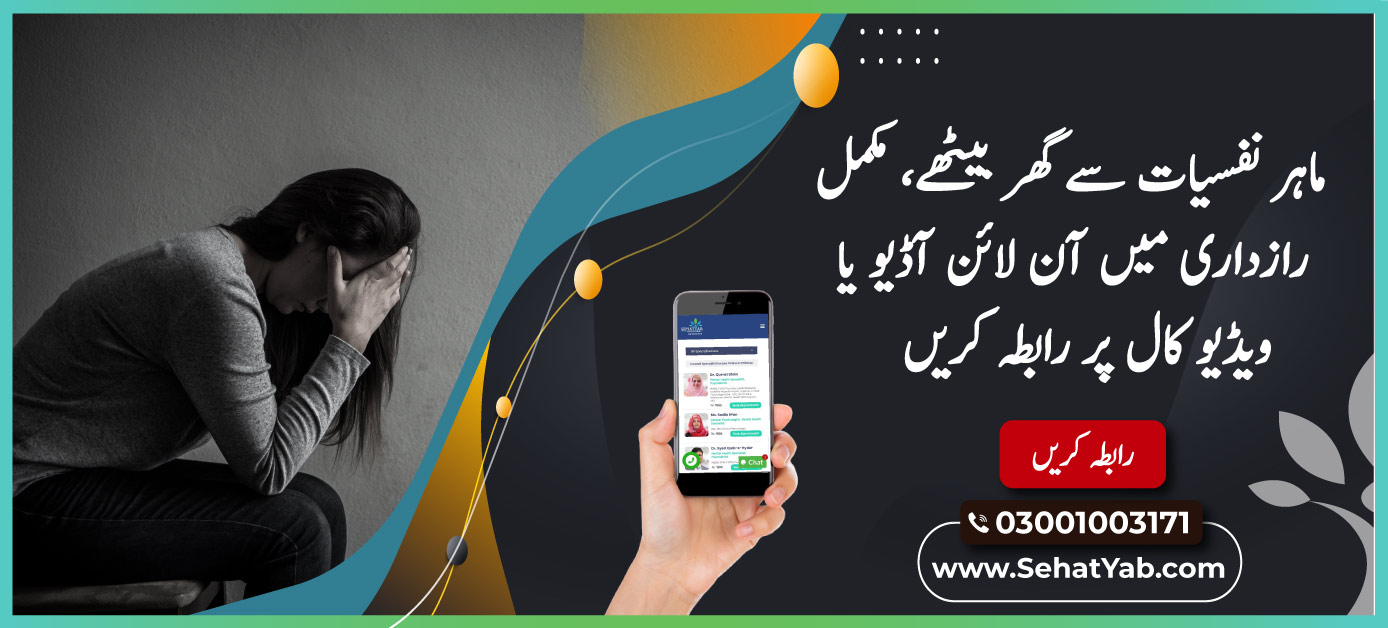Depression is primarily a disease attributable to genetic, psychological, and environmental causes. It has a major influence on a person’s mental health that the person does not like to do the activities which were once pleasurable, for example; meeting friends and hobbies is avoided. While downplaying achievements, mostly depressed patients begin to think inferior about themselves, feeling low self-esteem, hopelessness, anxiety, aggression, irritability, recurring suicidal thoughts, reduced focus, and indecisiveness.
Depression is not necessarily feeling sadness rather in some cases, one may have “flat emotions” i.e. they feel nothing neither happy nor sad.
The word ‘depression’ in all fairness is common in today’s life due to our anxious, monotonous, and challenging situations. However, one needs to recognize that there is a distinction between “blues” and depression. Losing a loved one, not having a job, or certain failures, are the harsh experiences we’re enduring all the time. The natural outcome of these deprivations is sorrow and sadness, but it cannot be asserted as depression—an illness until the sadness lingers causing a disturbance in daily life for long.
Common symptoms of depression include Physical, Psychological, or Social.
Physical Symptoms vary from person to person, however, these include deviation in appetite (some eat less while some people take too much food) may result in loss or gain of weight. The most frequently observed symptom is a change in the pattern of sleep. 75% of depression sufferers reported insomnia (less sleep), while approximately 40% of individuals reported hypersomnia (more sleep). Other symptoms are fatigued or lack of energy to accomplish daily tasks, unable to sit still unexplained aches, and constipation.
On the other hand, psychological symptoms include that the person does not like to do the activities which were once pleasurable, for example; meeting friends and hobbies is avoided. While downplaying achievements, mostly depressed patients begin to think pathetically about themselves, feeling low self-esteem, hopelessness, anxiety, aggression, irritability, recurring suicidal thoughts, reduced focus, and indecisiveness.
There are certain Social symptoms of depression by which people in the surrounding can become aware of the sufferer. Depressives may get infuriated and angry now and then, they avoid friends and siblings, do not take part in social gatherings, neglect their pursuits and interests, and decreased performance in assigned responsibilities.
Depending upon the severity level and symptoms, depression is categorized in many forms. These are termed as:
- Major Depressive Disorder (MDD),
- Dysthymic Depression also called “Persistent Depressive Disorder” (PDD),
- Manic Depression,
- Melancholic Depression, and
- Postpartum Depression.
Major Depressive Disorder also referred to as “Clinical Depression,” is a phenomenon that occurs when someone experiences severe distress and hopelessness for a prolonged period. A person may be diagnosed with MDD if he feels major changes in physical conditions such as restlessness, loss or gains in weight and appetite, a depressed mood for most of the day hence, unable to get a peaceful state of mind. However, this can be treated by regular medical consultation.
Dysthymic Depression also called “Chronic Depression”, has symptoms less severe than major depression. A person is said to be suffering from this kind of depression if the said symptoms retain for 2 years or more, meanwhile one may suffer episodes of Major Depression. While dysthymia is a mild illness, it’s also curable, especially if it is diagnosed at an earlier stage. Proper medical treatment can reduce the duration of symptoms minimizing the likeliness to lead to Major Depression.
Manic Depression also termed “Bipolar Disorder”, is a combined sickness of “Depression” and “Mania”. It is mainly characterized by wide emotional episodes from high (manic) to low (depress). A person is low during the depression period while exceptionally energetic and irritable during manic episodes, enough to perpetrate a crime as well. This kind of disorder is mostly treated by using antidepressants.
After childbirth, women get Postpartum Depression as they go through a lot of changes in physical, emotional, and behavior. Most women may get through disrupted sleep, lack of appetite, recurrent mood changes, and extreme exhaustion after birth due to a substantial drop in hormones, but the signs of postpartum are difficult to identify until some of the symptoms of MDD such as loss of pleasure and thoughts of harming others are followed. It must be carefully treated, or it can lead to severe health conditions.
According to WHO statistics, about 264 million people are struggling to fight depression. The causes of depression briefly entail factors like; family history, dysfunction in the brain’s frontal lobe, psychological trauma or adverse events, being self-critical, overthinking, use of drugs.
The depression signs and effects let us know how a depressed person is not only suffering through this excruciating period but his friends and family are also in a difficult situation. Moreover, depression has the potential of complications like cardiovascular disorders, arthritis, cancer, diabetes, and asthma. Thus, to refrain from an irreversible loss depression must be dug out from the roots. The treatment of depression needs a lot of patience and is best carried out if followed in stages. First comes self-realization and next is the development of an approach to improve the quality of life. This kind of behavior paves way for the rest of the process.
Moving further, the sufferer needs to overcome the trivia of the society about seeking psychiatric help because due to this hesitancy many victims remain untreated. So it is a must to reach out to a licensed professional help who would assess accurately through proper counseling. After this, the treatment would start in many therapeutic ways like psychotherapies and anti-depressants with the least side effects.
Life is a gift of Allah Almighty in which health has supreme value. We should always try to develop an optimistic behavior towards the difficulties and unwanted happenings of life. We should stay away from negative people, should exercise, have sufficient sleep, eat well and speak out our feelings.
SehatYab is an online clinic established in 2016 to bridge the treatment gap in mental health through easy and affordable online consultations using video/audio and text on an individual and on group therapy basis.
Book your appointment at www.sehatyab.com
Customer Services: 03001003171 / 03001003172









